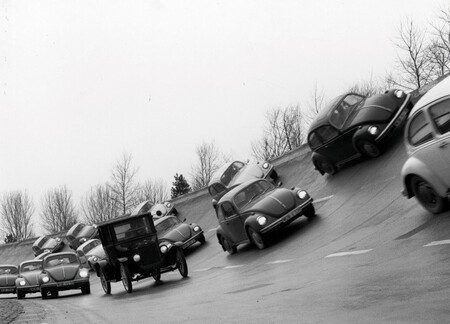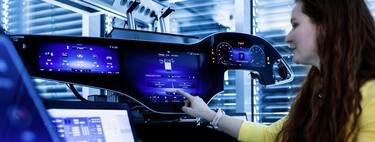Volkswagen has always been obsessed with being “the people’s car”: these three moments mark its history

We are probably at one of the most important turning points in automotive history. Pressure from European institutions to electrify the bulk of the car fleet is leading to a paradigm shift in the market. One as important as motorizing an entire country. Years in which Volkswagen was key and that the brand itself usually takes reference. But what will be the next steps?
The origin of Volkswagen is closely linked to the meaning of its own name. In the 30s of the last century, Adolf Hitler sought to motorize Germany by confronting the great English and French companies of the time. The project bore the name of Volkswagen (“people’s car”) and, although the model born from it bore the name of Kdf-Wagen (Kraft durch Freude: ‘strength through joy’), it ended up imposing itself in the culture popular.
That Kdf-Wagen was the beginning of what we know today as Beetle or beetle and in its development was immersed Ferdinand Porsche, to whom the Nazi government gave him the appropriate means for its production. The goal was to get a simple and cheap car that motorized the Germans. However, World War II devoured the money that should have been devoted to this purpose.
It would not be until December 27, 1945 when the Beetle entered production, under the name of Volkswagen Type 1, but had to wait until the 50’s when it exploded commercially. In fact, in 1955 the millionth unit left the factory and in 1972 it would earn the name “people’s car” in its own right, surpassing the Ford Model T as the best-selling car in history. 15,007,034 units were exceeded.

Volkswagen Golf, the reinvention
Shortly after another of the most iconic models in the history of Volkswagen would arrive: the Golf. In 1974 the manufacture of a model that lasts to this day and that already has eight generations behind it begins.
The birth of the Volkswagen Golf also comes at one of the turning points in automotive history. As a punishment for US and European support for Israel during the Yom Kippur War, OPEC triggers the price of fuel. It is time to manufacture smaller and more efficient vehicles, with small displacements to reduce consumption.
In this context, the Volkswagen Golf sees the light, a model that has managed to sell more than 35 million units throughout its history, which has become one of the most desired vehicles and which, as a result of a sports version from 1976, has managed to sneak the acronym GTI into the collective imagination.
The Volkswagen Golf, therefore, became from the outset the new “people’s car” of the German firm. It was a compact that became the new standard-bearer for the brand and one of the most influential models in keeping compacts alive for decades, even resisting the tough competition that the SUV has planted.
Relinquishing his principles?
At the moment, another unprecedented energy crisis is once again facing Volkswagen, which is facing one of its most difficult moments philosophically speaking.
Although the brand has always been proud of its “people’s car”, the truth is that the electric vehicle is beginning to question whether Volkswagen continues to be that brand that has had so much weight since its birth. The electric car is, initially, more expensive than its combustion rivals, but Volkswagen (and any other brand that sells in Europe) has no choice but to open its arms to this new technology.
Despite the fact that the Germans tried to turn their Volkswagen ID.3 into the new electric Golf, the truth is that this role seems to be played by their Volkswagen ID.4, a larger, more expensive SUV that the firm already sell as your global model.
We must not lose sight of the fact that over the years, Volkswagen has positioned its prices above most of the general firms. Sometimes as part of its distinctive strategy, like the Golf. So it is not surprising that the ID.4 has become its leading model in the jump to the electric car, one step away from ID.3 in sales despite being launched on the market later.

And, despite wanting to lead in this new technology, Volkswagen is also embracing the idea of selling less but more expensive. The financial director of the Volkswagen Group has already indicated that in the jump to the electric car, up to 60% of current models will fall by the wayside. In addition, the commitment to software and services, with subscriptions to them, make it clear that the firm no longer thinks so much about selling vehicles unit by unit and instead fixes the new client in its own ecosystem.
Has it arrived, for Volkswagen? time to leave the “people’s car” behind?
Reference-www.xataka.com